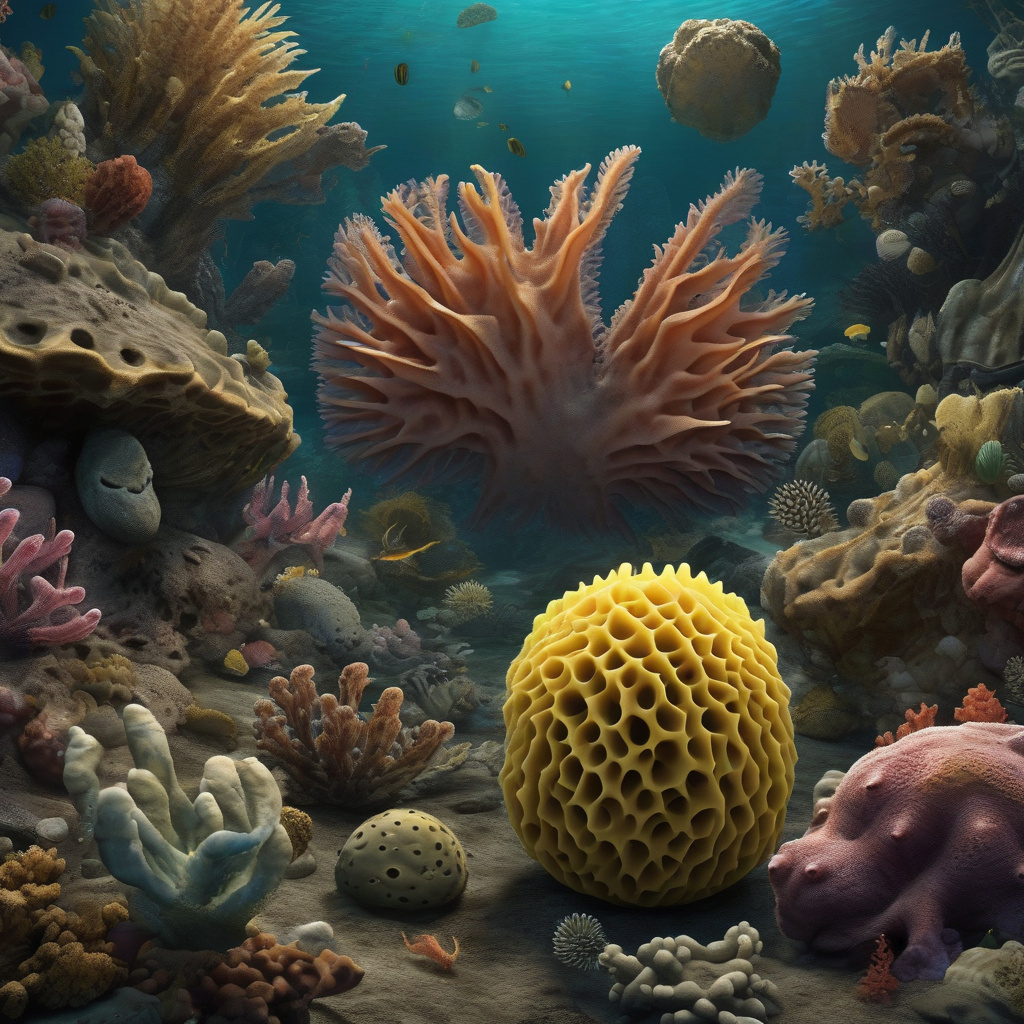The Oldest Architect: 480-Million-Year-Old Sponge Unveils Earth’s First Skeletal Reef
The discovery of a 480-million-year-old sponge in China has revolutionized scientists’ understanding of early reef formation on Earth. This groundbreaking finding sheds light on the evolutionary history of these ancient marine ecosystems and the pivotal role sponges played in building the planet’s first skeletal reef structures.
Unearthed in the Yangtze Gorges area of China, the fossilized remains of this prehistoric sponge have provided researchers with invaluable insights into the origins of reef-building organisms. The intricate structure of the sponge, preserved in remarkable detail, offers a glimpse into a time when these simple yet crucial creatures began to shape the underwater landscapes we recognize today.
Sponges, despite their humble appearance, played a significant role in the formation of Earth’s first skeletal reefs. These early reef systems, constructed primarily from sponge spicules and microbial mats, laid the foundation for the diverse and vibrant coral reefs that now populate our oceans. The discovery of this ancient sponge not only highlights its importance in reef construction but also underscores the resilience and adaptability of these organisms over millions of years.
By studying the fossilized remains of the 480-million-year-old sponge, scientists can piece together the environmental conditions and ecological interactions that existed during the Ordovician period. This deep dive into the past enables researchers to better understand how ancient organisms responded to changing climates and geological upheavals, providing valuable lessons for modern-day conservation efforts and ecosystem management.
Moreover, the discovery of this ancient sponge in China showcases the country’s rich paleontological heritage and its critical role in advancing our knowledge of Earth’s history. As a hub of scientific discovery and research, China continues to yield groundbreaking findings that reshape our understanding of the natural world and its evolution over billions of years.
In conclusion, the unveiling of the 480-million-year-old sponge in China represents a significant milestone in paleontological research, offering a rare glimpse into the distant past when Earth’s first skeletal reefs began to take shape. By unraveling the mysteries of these ancient ecosystems, scientists can piece together the puzzle of our planet’s evolutionary history and gain valuable insights into the origins of life as we know it.
#SpongeDiscovery, #AncientReef, #PaleontologicalResearch, #EvolutionaryHistory, #ChinaPaleontology












